Mentoring matters
Many of us have looked for a mentor, but what does a mentor look for in a mentee? The relationship is, after all, a two-way street.
Passion for the subject, an active participant, someone who follows through and is respectful of the mentor’s time and is all in: Those are among the signs of a good mentee, according to a panel of experienced mentors who participated in “Mentoring Matters,” an American Society for Biochemistry and Molecular Biology webinar.
“Mentoring is an important topic to both our audience and our Education and Professional Development Committee,” said Danielle Snowflack, ASBMB director of education, professional development and outreach, who organized the webinar in January to coincide with National Mentoring Month. “We’ve all had strong mentors throughout our careers who helped us get to our current positions. Many of us serve not only as research mentors, but as guides for navigating career changes and other aspects of personal development.”
On the panel were June Oshiro and Marianne Mallia, who both work in scientific publications at the Mayo Clinic; David A. Wetter, a professor of dermatology at the Mayo Clinic; and Adela Cota–Gomez, an associate professor of medicine at the University of Colorado Anschutz Medical Campus.
Watch the webinar
Watch “Mentoring Matters” on the ASBMB YouTube channel.
How to find a mentor? Many students find them on the faculty or in the lab, but there are other ways, especially when considering a career change. Mallia suggested going to conferences to seek out potential mentors and joining a professional association. For example, someone interested in exploring a career switch from research to writing might be interested to know the University of Chicago offers a course in scientific writing. It’s possible a faculty member could be a mentor, she said.
A mentor of Wetter’s encouraged him to join an association, and that helped him. A senior association member naturally will take junior members under their wing, he said.
What bothers mentors? For starters, being unprepared for meetings; also, a mentee who isn’t doing the homework and doesn’t know what they want from a mentor, Cota–Gomez said.
Mentors are motivated by altruism, Oshiro said, and mentees can show gratitude by giving public credit to those who help them. That might mean thanking a mentor as part of a presentation or mentioning them in a paper.
Advice from the panelists already has helped some ASBMB members who participated in the live webinar.
The webinar spurred Sarah Sheridan, an undergraduate at the University of California at Davis and also a mentor, to take quick action. “I immediately clarified our (mentoring) relationship, and I think this has really given us an idea of what needs to be done,” she said. “It has also given us a chance to mention when expectations have not been met and the situation can be improved.”
Fei San Lee, a graduate research assistant at the University of Nebraska-Lincoln, said she picked up several useful tips. Her mentor shared the webinar with her, and Lee, who is currently mentoring an undergraduate, said she learned that honest communication always works.
“A good mentor should always provide a safe environment for the mentee to communicate their feelings, thoughts and ideas.”
Enjoy reading ASBMB Today?
Become a member to receive the print edition four times a year and the digital edition weekly.
Learn moreFeatured jobs
from the ASBMB career center
Get the latest from ASBMB Today
Enter your email address, and we’ll send you a weekly email with recent articles, interviews and more.
Latest in Careers
Careers highlights or most popular articles
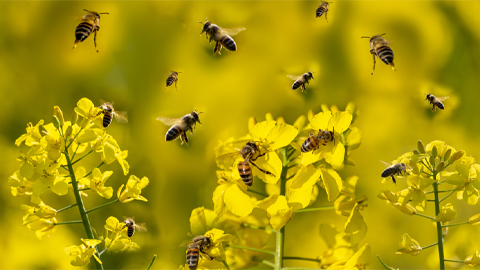
Becoming a scientific honey bee
At the World Science Forum, a speaker’s call for scientists to go out and “make honey” felt like the answer to a question Katy Brewer had been considering for a long time.

Making career resolutions a reality
Planning your next year (or 10) can include backward planning, exploratory goals and more
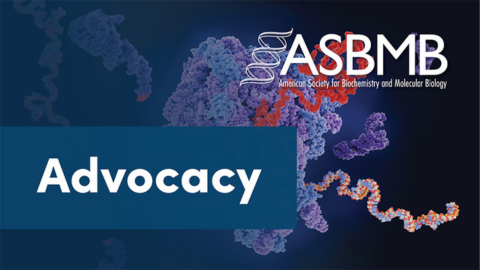
Upcoming opportunities
Register for ASBMB's Feb. 6 webinar on perceptions of science and public engagement.
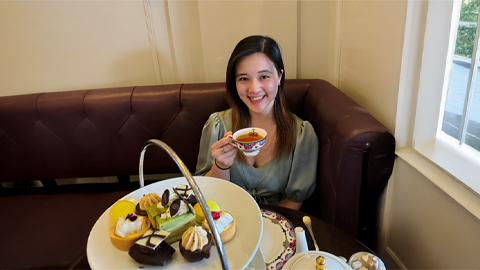
I find beauty in telling stories about giants
Andrea Lius wished she could find a focus for her scientific research — until she realized that what she really liked was talking to other scientists about the focus of their work.
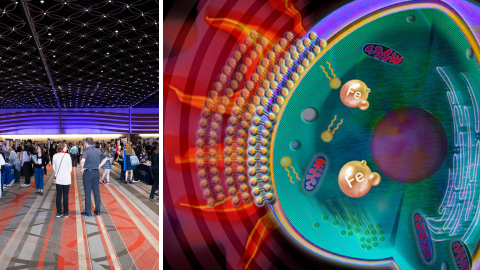
Upcoming opportunities
Feb. deadlines: Register for ASBMB's meeting on ferroptosis by Feb. 18 to save $50. Plus, book a recruiter table at the #ASBMB25 career and education fair by Feb. 15.
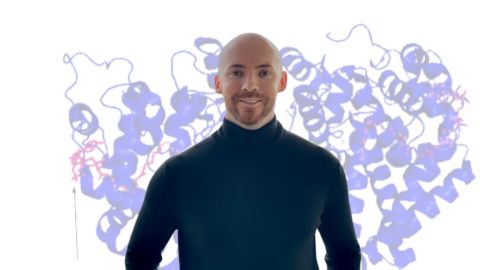
New year, new goals: Advice for grad students
Fourth-year Ph.D. candidate Matt Selby talks to careers columnist Courtney Chandler about his personal goal of publishing a first-author journal article and the importance of time management.

